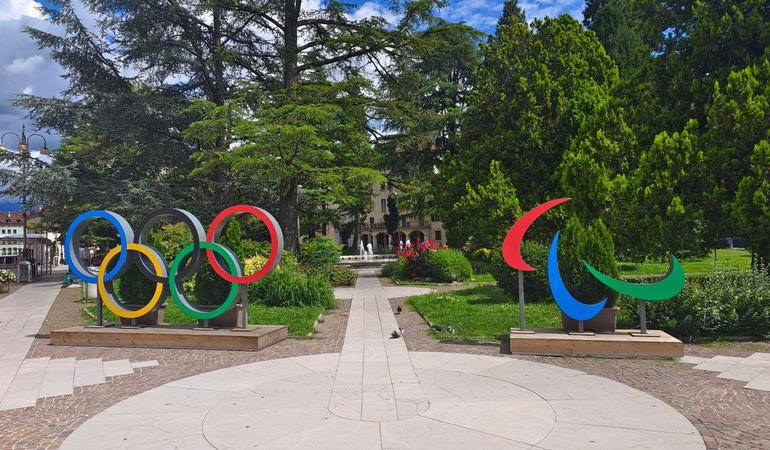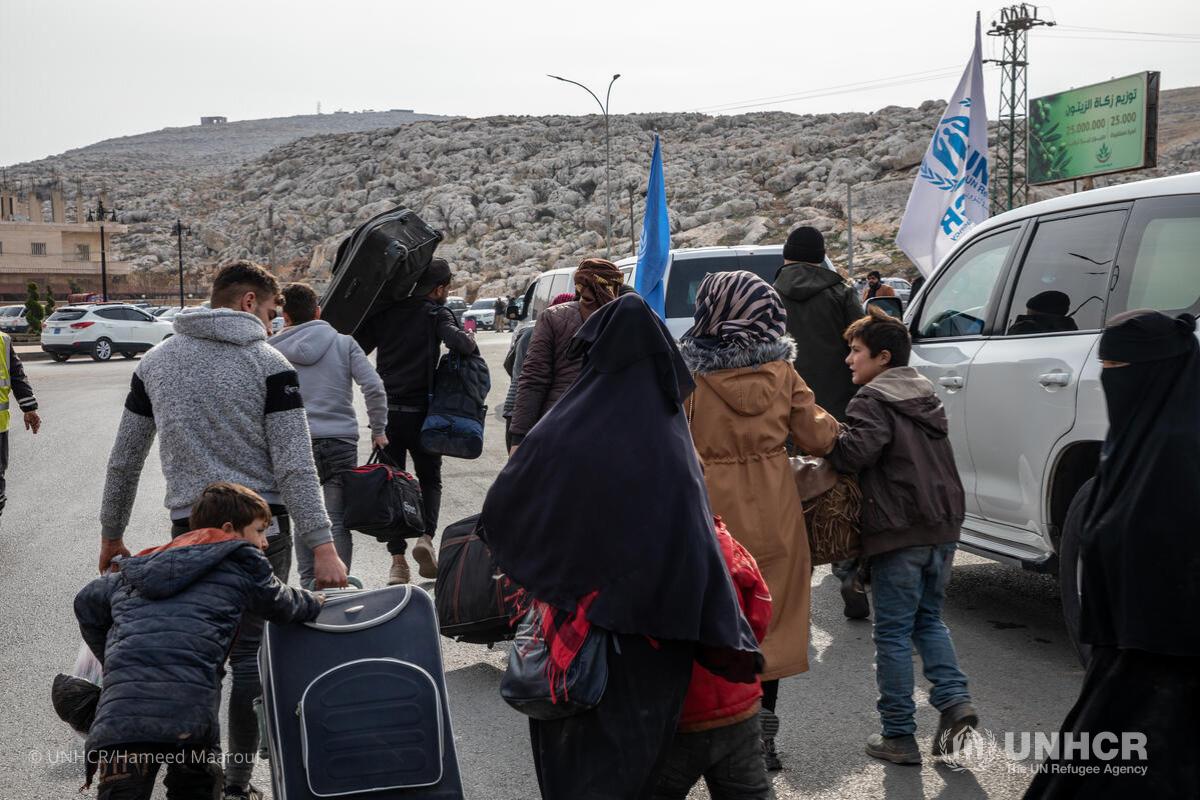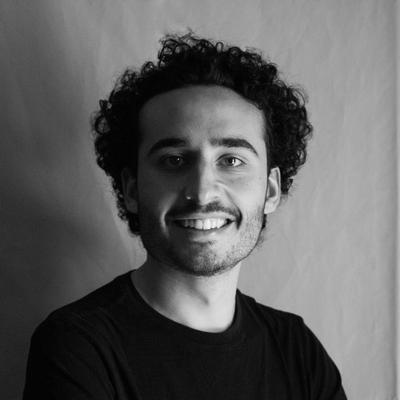
Milano-Cortina. Ecco come verranno spesi i 450 milioni di euro delle paralimpiadi



13 dicembre 2024
'I couldn't wait to come back, I'm so happy. I have re-embraced relatives and friends I had not seen for eight years'. 35-year-old Monzer does not hold back his emotion: as he speaks on the phone to lavialibera , he is back in Aleppo, where he was born and lived until 2017, when the war forced him to flee and cross the country's northern border. It was a two-hour journey, stuck under a truck to escape controls. Since then he has been living in Gaziantep, in southern Turkey, with his wife and two children who joined him months later. If he has returned to his hometown, it is not to move there permanently, or at least not yet: 'I will stay a few days to understand what the situation is like, then I will go back to Turkey,' he explains. Before returning to live here, many things need to be fixed: water, electricity, telephone line, Internet. My house was damaged by the bombing. It will still take months'.
Asylum and migration, what the new EU pact provides
Monzer is one of more than 6 million Syrian refugees scattered all over the world for whom the sudden fall of Bashar al Assad's regime has a bittersweet taste: on the one hand the joy and desire, for many, to return home, on the other hand the concern for an uncertain future and the fear that host states may force repatriations. Turkey, which hosts the largest number, more than three million, has announced the opening of additional border crossings to facilitate the passage of the thousands of Syrians who are already returning. President Recep Tayyip Erdoğan has pledged to facilitate 'voluntary and dignified repatriations', but the experience of recent years, characterised by growing xenophobic sentiment towards Syrians, raises concerns: various non-governmental organisations, including Amnesty International and Human Rights Watch, have repeatedly denounced the forced deportation of thousands of refugees to Syria, often presented as 'voluntary returns' while the war still raged.
In Europe, several governments, including the Italian government, have decided to stop examining the asylum applications of people from Syria. A choice that, denounced by Human Rights Watch, "brings with it real risks". "Fighting is still going on in some parts of the territory and the possibility of new waves of refugees fleeing persecution cannot be ruled out," reads the statement signed by Bill Frelick, director of the NGO's Migrant and Refugee Rights Department, who urged all states to maintain the current protection regime "until it is clear that conditions in Syria offer some stability." The United Nations High Commissioner for Refugees (UNHCR) also intervened, calling on governments to 'ensure access to territory, asylum and protection for people seeking safety' and allow applicants now placed on hold 'to continue to enjoy the same rights as everyone else, including in terms of reception conditions'.
There are also those who, like Austria, have gone further: on Monday, Federal Chancellor Karl Nehammer instructed the Minister of the Interior not only to suspend asylum applications, but to review those already granted, to stop family reunifications and to order an 'orderly programme of repatriations and deportations'. The country hosts the third largest Syrian community in Europe, with almost 90,000 refugees counted by UNHCR in 2023. "Until the situation calms down and Syria becomes safe and stable again, there can be no talk of return," Abdulhkeem Alshater, president of the Free Syrian Community of Austria association, comments to lavialibera . 'Rather, we expect European governments to support the construction of a democratic and independent system, so that what happened in Libya and Iraq does not happen'.
In Germany, which hosts the largest number of Syrian exiles in Europe, almost 800,000 refugees and asylum seekers, the debate on the return is intertwined with the juncture marked by the flash election campaign ahead of the early federal elections on 23 February. The extreme right-wing party Alternative für Deutschland, which is in the ascendancy, is pressing for immediate repatriation: "Whoever celebrates the liberation of Syria clearly has no more reason to flee and should return immediately," wrote leader Alice Weidel on X. Similar comments came from members of the Christian Democratic Union (Cdu, centre-right) and Sahra Wagenknecht, leader of the populist left-wing party Die Linke.
"I can't help but notice the hypocrisy of governments that for years have not moved a finger to contribute to resolving the conflict or were even considering normalising relations with the regime and are now thinking first of getting rid of the refugees,' commented Veronica Zanetta Brandoni, director of advocacy for the NGO Syrian Emergency Task Force. These choices seem very premature to me. Obviously, no one wants to be a refugee, everyone wants to go home, but they are asking for time to calmly consider the evolution of the situation and organise themselves. Forcing them would be wrong'. Not to mention the issue of reconstruction: 'Many of those who have returned in recent days, including internally displaced persons, have found their homes completely destroyed,' Zanetta Brandoni continues. 'It is also an economic issue: moving requires resources that not everyone has in the immediate future. For those who have less, return can only be a long-term project'.
War in Gaza. Voices from the Rafah hellhole: 'No place is safe here'
Feras, 36, has been thinking about this for days, ever since it became clear that the Assad regime's hours were numbered. Originally from Talbiseh in north-west Syria, he saw fifty friends and family members die under the bombs during the war. After fleeing, he lived with his wife and two daughters, now aged nine and ten, in southern Turkey, until the climate of growing hostility towards refugees led him to move to the suburbs of Paris last year. 'We discussed it a lot and I think all Syrians around the world are thinking about it,' he tells lavialibera. ' Of course we want to come back. There are so many places and so many people I want to see again after 14 years. My two daughters were born in Syria, but we left when they were too young to remember. Now they ask me: 'When are we going back to Syria? When will we see our grandparents?' But it is not a choice you make in five minutes. It is a huge responsibility, especially for someone with a family. You have to stop and think: are there schools for my daughters? Is there work? Security? Where am I going to live if my house has been destroyed?".
Those granted political asylum cannot even carry out reconnaissance visits, because international conventions provide for the automatic loss of refugee status if they return to the country from which they are fleeing. For this reason, UNHCR urged states to "grant the necessary flexibility to assess conditions upon return, for example through verification visits" so that refugees "are able to make informed decisions without any pressure". "I have decided that I will wait for at least one more year," Feras continues. "I have to be sure that my family is safe, as it would be a definitive return.
France is also considering suspending the examination of asylum applications of those arriving from Syria. About 100,000 refugees throughout the European Union are waiting for the outcome and could therefore see their applications frozen, perhaps after months of waiting. Meanwhile, the new Commission is trying to find a common position. On Tuesday, the newly-appointed high representative for foreign policy Kaja Kallas declared that "Europe does not want to see new waves of refugees from Syria" and that she "will work to favour the stabilisation of the country so as to allow repatriations".
La tua donazione ci servirà a mantenere il sito accessibile a tutti
Riformata. Così il governo vorrebbe la magistratura, ma l'obiettivo è solo limitarne il potere
La tua donazione ci servirà a mantenere il sito accessibile a tutti